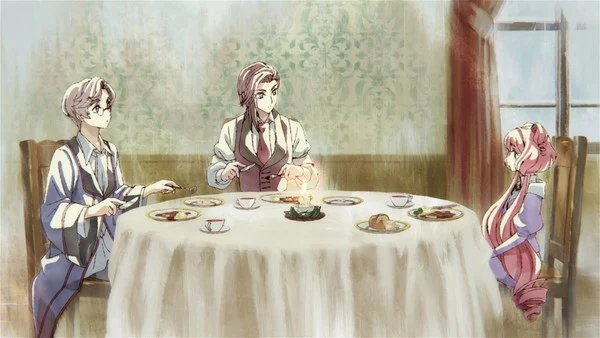 Contrived situations reach new levels in this prequel to the Yonen Buzz series.
Contrived situations reach new levels in this prequel to the Yonen Buzz series.
Creative Talent
Writer/Artist: Christina Plaka
Translated by: Nina Olligschaleger
Adapted by: Zachary Rau
What They Say
Meet Plastic Chew, an up-and-coming rock band desperately in need of a lead singer. Enter Sayuri, a young musician with dreams of rock stardom and a vocal style perfectly suited for PC’s sound. Problem is, she’s a girl and according to the group’s credo, the band that plays together, stays together – living in the same house! Jun, the introverted lead guitarist, isn’t at all comfortable with this situation, especially when he finds out Sayuri is a runaway! With a big rock competition fast approaching, will Plastic Chew catch its big break, or break up?
The Review:
Contents (please note that content portions of a review may contain spoilers):
Plastic Chew and its members were left in the lurch when their lead singer, Masanori, walked out on them. How lucky they are, then, to discover the brilliant, sixteen-year-old Sayuri when she randomly strikes up a duet with Jun when he’s listening to a piece of music in a record store! And as the hapless high school girl has no place to live, she moves in with the formerly all-male band, and is forced to share a room with Jun. There is no denying that their voices are a perfect match, but the two bicker and banter their way into arguments, usually about their parents. Jun lost his at a young age, while Sayuri is revealed to be a runaway who left home when her parents insisted that she stop singing. Still, the two have definitely fallen for each other by the time that Jun and Keigo, the goofy drummer, decide to go and spy on their main competition for the upcoming Battle of the Bands: Cargo, an all-male pop group, and Orchid, an all-female group.
After narrowly escaping the bassist of Cargo’s rage, they still decide to go and check on Orchid, where, again, they get caught. The girls are perfectly willing to let them go: for a kiss! Just as Jun is kissing Kishiko, the lead singer, Sayuri discovers them and runs out, enraged. The two don’t even speak to one another until Jun locates Sayuri’s parents and brings them to the competition, where they give Sayuri their blessing to continue living and playing with the band members. Despite their best attempts, the crowd simply doesn’t respond to Plastic Chew’s heavier metal style when compared to the pop of Orchid, and they lose–only to have Masanori return…
The art of Yonen Buzz’s prequel is, simply, amateurish. Lines are extremely thick in the first chapter, and character designs are, aside from the extra-pointy chins, bland. On one page, a shot of Sayuri and another of Jun look exactly the same other than slight differences in their clothing–the angle is even exactly the same. The pencil sketches that are included in some of the sidebars are much more appealing, but that’s because they look like very good fan art rather than a poor finished project. Backgrounds are also virtually non-existent. Granted, there is a clear progression in at least some aspects of the art. Lines are much, much thinner at the end of the volume than they are at the start, even if they seem a little shaky. Some of the expressions of the singers in the last chapter would have been unimaginable in the first, and the poses of the characters also look less wooden. Don’t get me wrong–it’s still not amazing. It is easily identifiable as an early effort, but the progression between five chapters hints at a lot more skill than the first pages would signify.
In Summary:
Yonen Buzz: Plastic Chew is one of those titles that I’d just rather sweep under the carpet and forget about – particularly the first few chapters. Christina Plaka seems to agree, as she notes that there are “unquestionable deficiencies in the art and storytelling” in one of the sidebars, but those who enjoyed the main series should look forward to a deeper introduction to the main characters. The characters themselves are mildly charming and offer some signs of a quick, pleasant read, but it’s simply not a title that holds a large amount of re-read value. Unfortunately, so much of the story is ridiculously contrived; Sayuri must share Jun’s room rather than sleep on the couch, Orchid members want a kiss to make up for Jun’s trespassing that Sayuri happens to see, her parents never reported her disappearance to the police, and then they are perfectly willing to let her move into a house full of boys when they discover it all. This doesn’t even take into account the utterly ridiculous meeting where Sayuri bursts out into song at the music store. At best, this book may hold some value to those who are already fans of the series than those who are just being introduced to it, because this prequel, even with the semi-cliffhanger ending, doesn’t offer much reason to pick up the main series and start reading.
Content Grade: D+
Art Grade: C-
Packaging Grade: B-
Text/Translation Grade: C
Age Rating: 13+
Released By: TOKYOPOP
Release Date: July 15th, 2008
MSRP: $9.99



